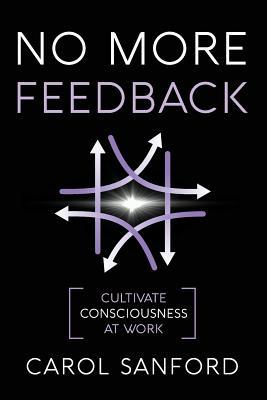But does it help employees realize their potential?
Does feedback improve the bottom line of a company?Business Educator Carol Sanford has spent 40 years developing people, leadership, and systems to ensure all stakeholders benefit. Fortune 500 companies like Google, P&G, and DuPont, plus entrepreneurial enterprises like Seventh Generation and Numi Tea, have engaged her to develop a capability to reimagine and redesign the entire business from strategy to work design. By popular demand, her new book series takes on common toxic workplace practices hurting organizations today and presents the contrarian remedies to achieve extraordinary outcomes.
Management depends on feedback to measure and improve employee performance and the company's bottom line. An annual peer review is often foundational to this process. But is this decades-old managing tradition getting the results it promises? No More Feedback: Cultivate Consciousness at Work, Book 1 in Carol Sanford's new Toxic Practice book series, is your resource for breaking down the erroneous premises about feedback and its effects in achieving the main goal: employees delivering on their potential.
- This business guide disrupts commonly-held organizational beliefs about workplace culture to explain:
- How feedback can (and often does!) undermine employee development.
- The negative impact of feedback on core human capabilities: initiative, selflessness and accountability, fairness & equity.
- The 6 premises and phases to develop effective work systems.
- How to see business change as a living ecosystem set up as an alternative path to growth and success.
- The developmental alternative to feedback to transform your team into innovative, self-regulating employees.
Packed with true case stories from Carol's extensive career in business, No More Feedback: Cultivate Consciousness at Work identifies the errors in the feedback trap, why employees should be developed to use the power to self-regulate, and the instruments essential to enduring developmental success.
